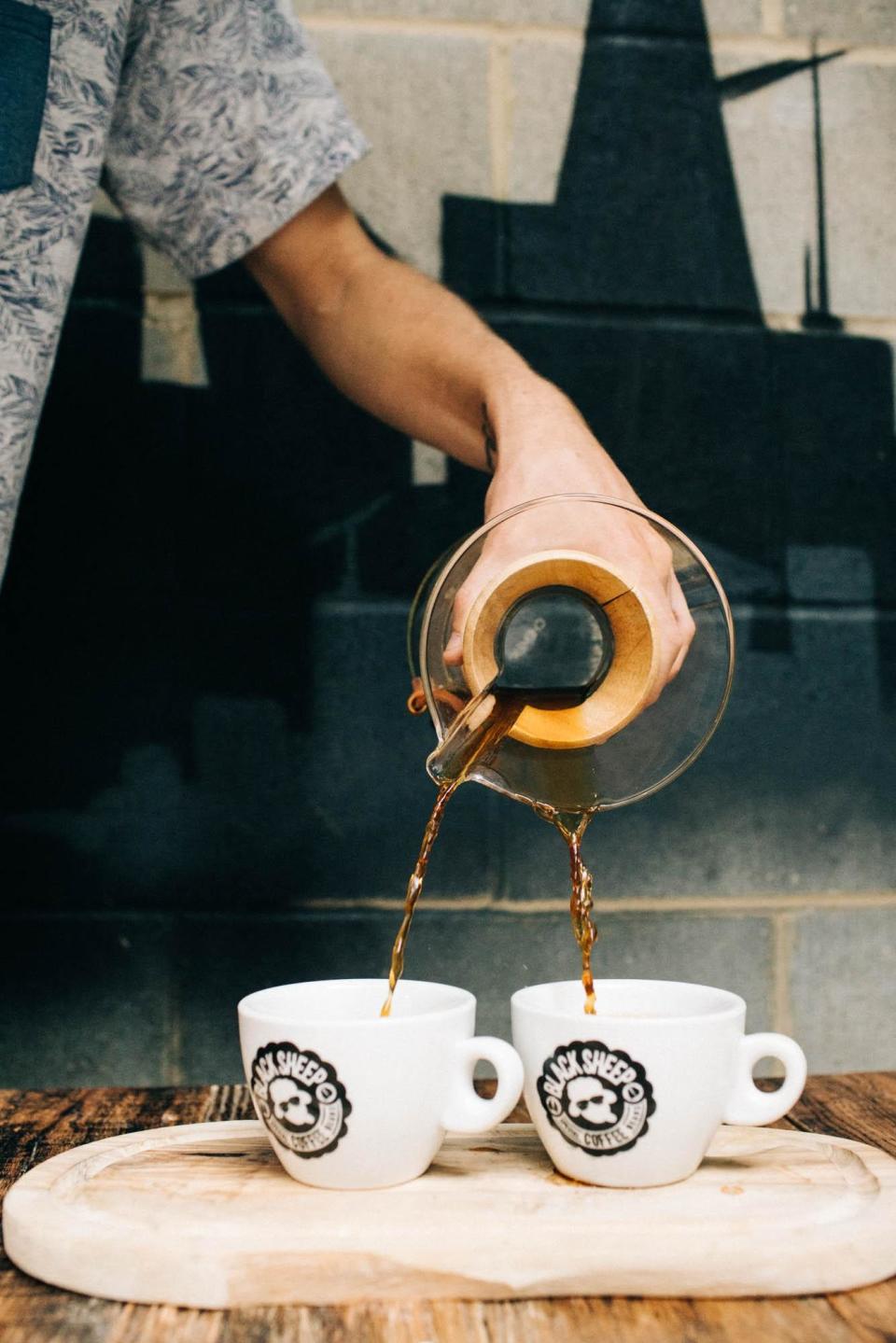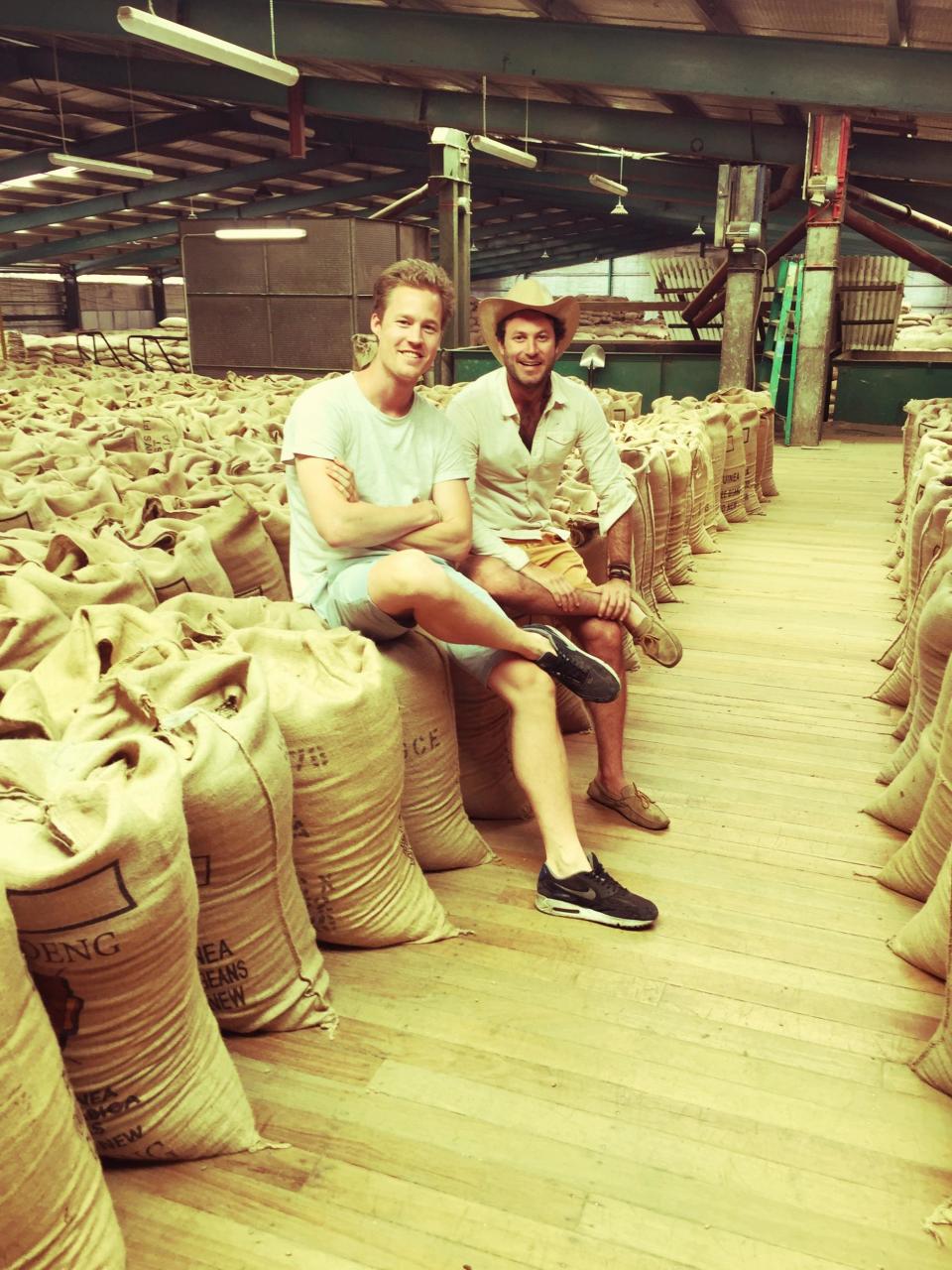Black Sheep Coffee: London brand grew to £110m success without using single-use plastics

A London-based coffee chain, which grew from a stall in Camden, became a £110 million success in just six years without using any single-use plastics for their products.
Black Sheep Coffee owes its success to its unique business model with co-founders Gabriel Shohet and Eirik Holth constantly aiming to “leave the herd behind" and find new territory in a big industry.
Customers not only flock to their branches for some of the world’s best quality Robusta brews, but also for the firm’s policies on plastic and fighting social exclusion with the offer of free coffees to homeless people.
Around 18 months ago, the company was valued at £110m and since then its growth has continued to soar, reaching a total of 35 stores in London, Manchester, Manilla and soon Oxford.
Yet Mr Shohet and Mr Holth have completely avoided any institutional financing or private equity funding.
Instead they built the company from the grassroots, as coffee lovers returned to their doors again and again.

“We have always tried things which are a challenge that other people are not doing,” Mr Shohet told the Standard.
The pair know their customer-base well, especially millennials who “care about the environment and making an impact".
Mr Holth said the data and customer surveys they have carried out showed that their values were “the driving factors that brought customers into our stores."
“They also know they are going to get the best coffee in London," he added.
Black Sheep Coffee only comes in corn starch cups and when recycled they fully break down in just 8 to 10 weeks, compared to hundreds of years for plastic.
The co-founders now plan to “go a step further”, launching a new cup by the end of the year. It will be made from a vegetable starch that will not even need to go through the recycling process.

Unlike other chains, who offer a discount for people with their own cups, Mr Shohet believes: “The only sensible way to deal with plastic is to just not use it.”
“What we also did for the homeless community was very different from most people’s approach to charity,” he said.
Black Sheep Coffee runs a "homeless initiative that pays for itself”. Customers can buy a second discounted coffee or return their full loyalty cards so that a homeless person can walk in and get a free brew.
Mr Shohet said: “Beyond just offering the coffee, it’s really a way to fight social exclusion."

“These people sometimes spend several days with no human interaction so when they build up a relationship with a barista, that feeling that someone knows your name and your order is often more important than the coffee itself.”
The duo opened their first coffee pop up stall in Camden in 2013, and spent two years moving around London.
In a market where almost everyone was using Arabica coffee beans, Mr Shohet and Mr Holth decided to use Robusta beans as well, despite their being considered as far inferior.
“We decided to launch the Robusta coffee, which was very much going against the trend and status quo of a very established market,” Mr Shohet said. "It's a speciality good that is really hard to come by and most is really low quality."
“Robusta coffee is what we became famous for in the early days,” Mr Shohet said. “We still have customers who used to come to those first pop up stops."
The pair travelled to more than 150 coffee plantations around the world to find the highest quality Robusta coffee and found a farmer in southern India who grew incredible quality beans to match the best Arabica coffee out there.
Now they offer five different beans in every shop – including Arabica brews “only with interesting stories behind them”.
Mr Shohet said: “We know exactly where the coffee is from. We have always tried to have company values which are very specialised.
"And we have managed to fund the business from customers of ours which means we can stay intact and preserve our long term vision for the brand and company.”

 Yahoo News
Yahoo News 
